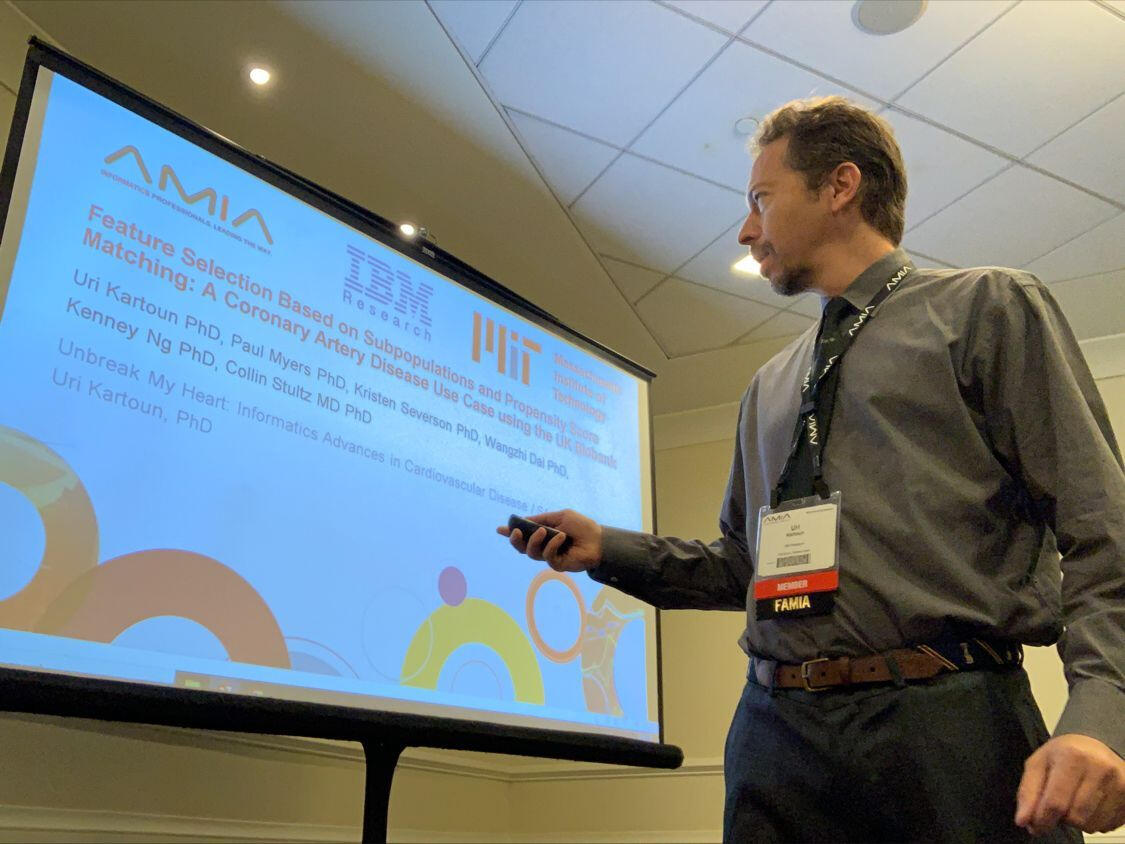Uri Kartoun PhD
LinkedIn; Google Scholar; PubMed; DBbun LLC; YouTube
Contact: [email protected]; Resume (pdf)

Welcome to my professional portal. I am Dr. Uri Kartoun, a research scientist and inventor, with a focus on developing innovative machine learning methods and more recently leveraging large language models. Based in Cambridge, Massachusetts, my work involves integrating advanced statistical and machine learning methodologies to enhance healthcare outcomes. I have collaborated with institutions such as the Broad Institute of MIT and Harvard, Cleveland Clinic, MIT, and Mass General Brigham, focusing on real-world evidence analytics and predictive modeling. In my most recent work, I have led efforts in causal inference, including cohort design, data extraction, the development of novel covariates, and the application of machine learning techniques—such as feature selection and methods for addressing confounding—using my preferred programming languages: SQL, R, and Python.Throughout my career, I have been an active inventor, particularly during my tenures at Microsoft and IBM. My inventions span a broad range of domains, including human-computer interaction, machine learning, health & wellbeing, privacy, and commerce. I became an IBM Master Inventor within three years after joining IBM Research. I was also appointed as the chair of an invention development team, ranking patent disclosures and mentoring inventors.My research has contributed to improving fairness in high-stakes applications, such as refining the Model for End-Stage Liver Disease (MELD) score for liver allocation and addressing disparities in cardiovascular risk models. One notable outcome of this work was the development of MELD-Plus, an enhanced risk assessment model for liver disease. In April 2025, a group of researchers conducted a study demonstrating that MELD-Plus outperformed 5 leading risk assessment models in liver disease. These projects underscore the importance of ethical considerations in AI-driven systems.I have received recognition for my contributions, including selection for the IBM Research Honor Roll (May 2024) and the IBM Outstanding Technical Innovation Award (July 2024), as well as an IEEE award. I am also a Fellow of the American Medical Informatics Association (Long-Term Experience Pathway).During my Ph.D., I developed expertise with both mobile and fixed-arm robots, grounding my understanding of the challenges in designing and deploying AI-driven physical systems. My dissertation focused on human-robot collaboration, specifically incorporating reinforcement learning to enhance interaction dynamics. This background in robotics complements my healthcare informatics work.